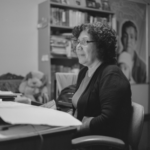What we do
Image: Anyone can fly, Jibon Malaker, Bangladesh. 2019.
Data
We generate accessible, transparent and rigorous gender data. Our annual Gender and Health Index and Global Report assesses 200 organisations on their workplace policies, practices and programmatic approaches in support of gender equality. Through the Index and Report, we generate an ever growing evidence base to inform advocacy and institutional change in the global health sector.
The Sex, Gender and COVID-19 Project is the world’s largest repository of sex-disaggregated COVID-19 data. It includes the Sex, Gender and COVID-19 Health Policy Portal, a comprehensive analysis of the integration of sex and gender in national COVID-19 health policies. The project provides a rich source of evidence on the equity and effectiveness of national governments pandemic responses, and provides open-access data for policy makers, researchers and advocates across the globe.
Activation
Evidence alone, regardless of its rigour, doesn’t drive change. We engage organisations, decision-makers, staff, advocates and funders via a suite of tools, services and partnerships to activate our data and improve the ways in which opportunities and resources are wielded and distributed.
This includes how-to guides, policy repositories, a self-assessment tool and a host of other resources. Through the This is Gender competition, we aim to shift the representation of gender towards images that are more diverse and inclusive while reaching and engaging a wider audience.
Projects
Partnerships
At GH5050 (Global Health 50/50), global partnerships are at the heart of how we deliver rigorous, impactful research and drive systemic change. Guided by a commitment to equity, ethics, and excellence, we collaborate with organisations and individuals who share our vision of advancing gender and social justice. We build and sustain partnerships across sectors – such as food security and climate justice – and countries – such as India, Kenya, Tunisia and Nepal – to deepen research on and accountability for gender equality. To discover more on how we drive change through power partnerships click here.









